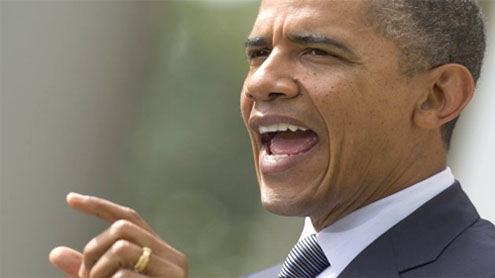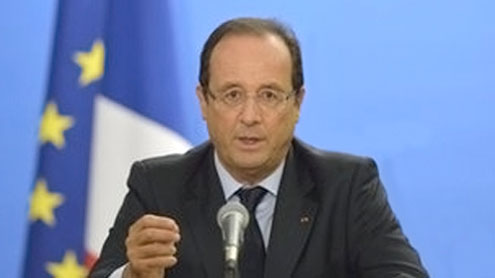
FOR THE US and Asia, now is the time, if ever there was a time. As President Barack Obama moved officially into his second-term, presumably the historic “pivot” to Asia in US foreign policy will proceed briskly apace. That would be good. There is no time to dawdle.
If Asia is not rising, as virtually every expert says, then the rest of us must be sinking. The statistics out of Asia are daunting. Here are a few. Before too long China will have the world’s largest economy. Perhaps even before that, India will have the largest population. Indonesia, oft neglected by the West, has a higher per-capital income than India and — along with Turkey — far more clout in the Islamic world.
Pakistan, a nuclear power as well as an Islamic nation, may be coming apart — as Obama well knows. Japan is still the world’s third largest economy and may have the second most modernised military (people forget this). And the Japanese are getting weary of playing nice with Beijing. From a mutually profitable commercial, trading and business relationship, the two East Asian powers seem to be on the verge converting their business into nothing more than pure geopolitical trouble.
Then there is the US — sitting across the Pacific and trying to get its mind off Europe and the Middle East, at least a little. We start at the headquarters of Camp Smith at Pearl Harbour (housing some of this country’s most cerebral military leaders) and continue onto the White House 3,000 miles away (hosting a wise president eager to avoid unnecessary wars). Across this span of geography, regional politics and time zones, the new American foreign policy is being recalibrated.
If the recalibration is to be based almost entirely on an attempted isolation of China, this policy will flop. A resurgent (if, like us, problem-plagued) China is already out and about almost everywhere with commercial, diplomatic and — to some extent — military impact. The opportunity for isolation is past. What’s more, should the US prioritise cornering China every step of the way, China will fight back every step of the way. The downside cost to both will be enormous, unnecessary and tragic.
It is true that a case can be made for an uptick in US and allied wariness and military readiness. In fact, that case has already been amply made by Beijing itself. All but abandoning its former charm offensive of “peaceful rising,” the government has embarked on muscle flexing in the region that is disturbing to neighbours. The far more clever Deng Xiaoping must be rolling over in his grave. But if the military and civilian command of the People’s Republic of China is so determined to assist the American Pentagon in its effort to avoid further budget cuts, what can I conceivably say to convince it otherwise?
Perhaps the just-installed administration of Xi Jinping, the new Chinese number one, will snap China out of its current in-your-face mode. One does understand that after centuries of exploitation and oppression, China finally feels it has amazing muscles to flex. Having had sand kicked in its face for so long, it is time to kick back.
But President Xi needs to recalibrate his rising country’s “pivot against Asia.” Whatever its domestic benefits, the ploy isn’t working internationally; it only plays into the hands of those here in America who wish to portray the rising China as the second coming of the old Soviet Union. And it will permit Japan to re-militarise as a rational act of national security. China’s interests are broad and complex and no one interest group (such as the People’s Liberation Army) should be allowed to dominate its policy direction.
For the US’s part, Obama must engage China with respect and nuance. He is said to worry that the prior Bush and Clinton administrations were too easy on China — whatever that might mean. In fact, apart from a few lapses, both administrations got the China relationship more right than wrong and will be so credited by history.What would be remarkably ironic is if the President, who is known to regard any war as the least acceptable option, fashions a policy that leads to conflict with China. That mistake would more than blemish his watch. It would be a blunder worse than President George W. Bush’s unnecessary invasion and occupation of Iraq.
In this respect, US foreign-policy officials deserve immense credit for the alacrity with which they have recognised the tinderbox of the Senkaku (Diaoyu) tension. Tokyo is obviously a dangerous fuse just waiting to blow. The visit of Shinzo Abe, Japan’s Prime Minister, to Vietnam and Indonesia is not just about trade but about China’s apparent ambition to dominate in the region more or less overnight.
China could reduce a lot of tension by reverting to the wise old China that is cunningly cautious, while understanding that no one is going to trample on it any more. And Obama could help by encouraging and respecting that change of course. He doesn’t have to run for reelection; no one is going to bother calling him weak, when, in fact, the real danger is that the US will adopt too strong-armed an Asia “pivot” and inadvertently risk undermining Asian stability. – KahleejNews












